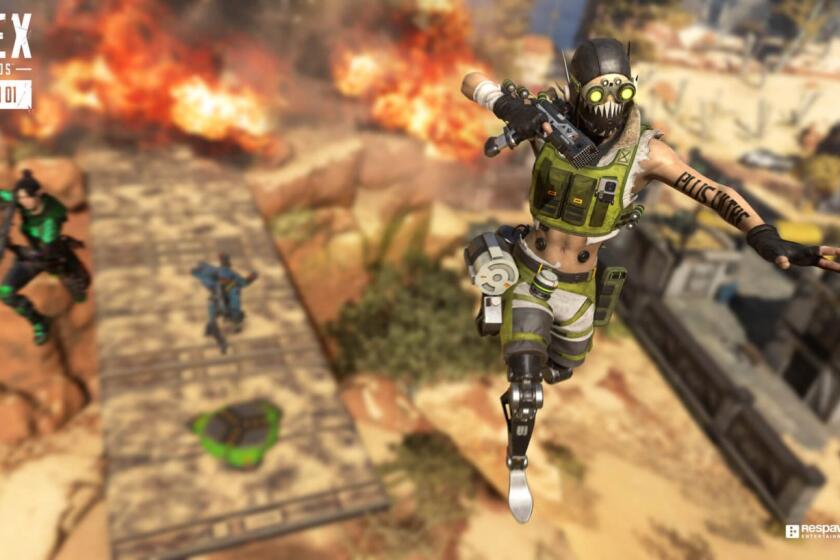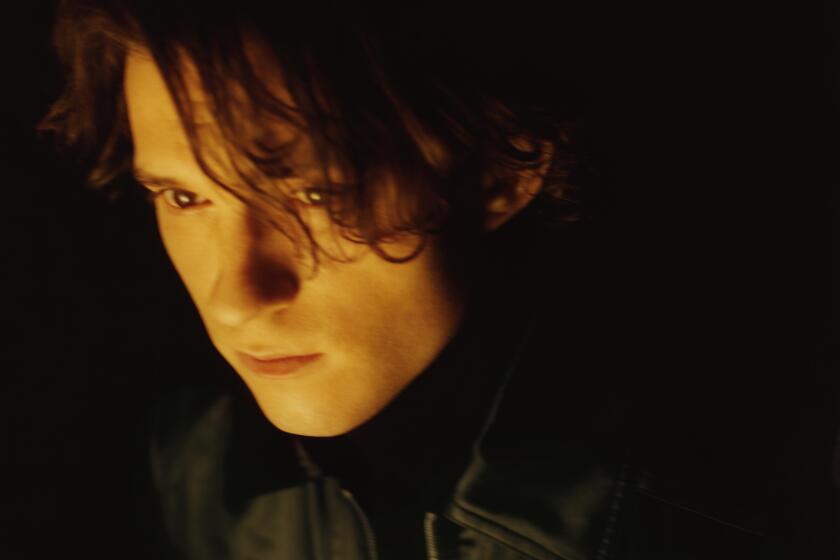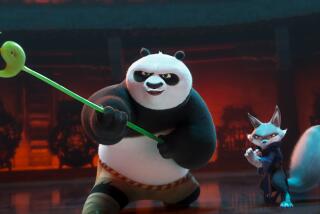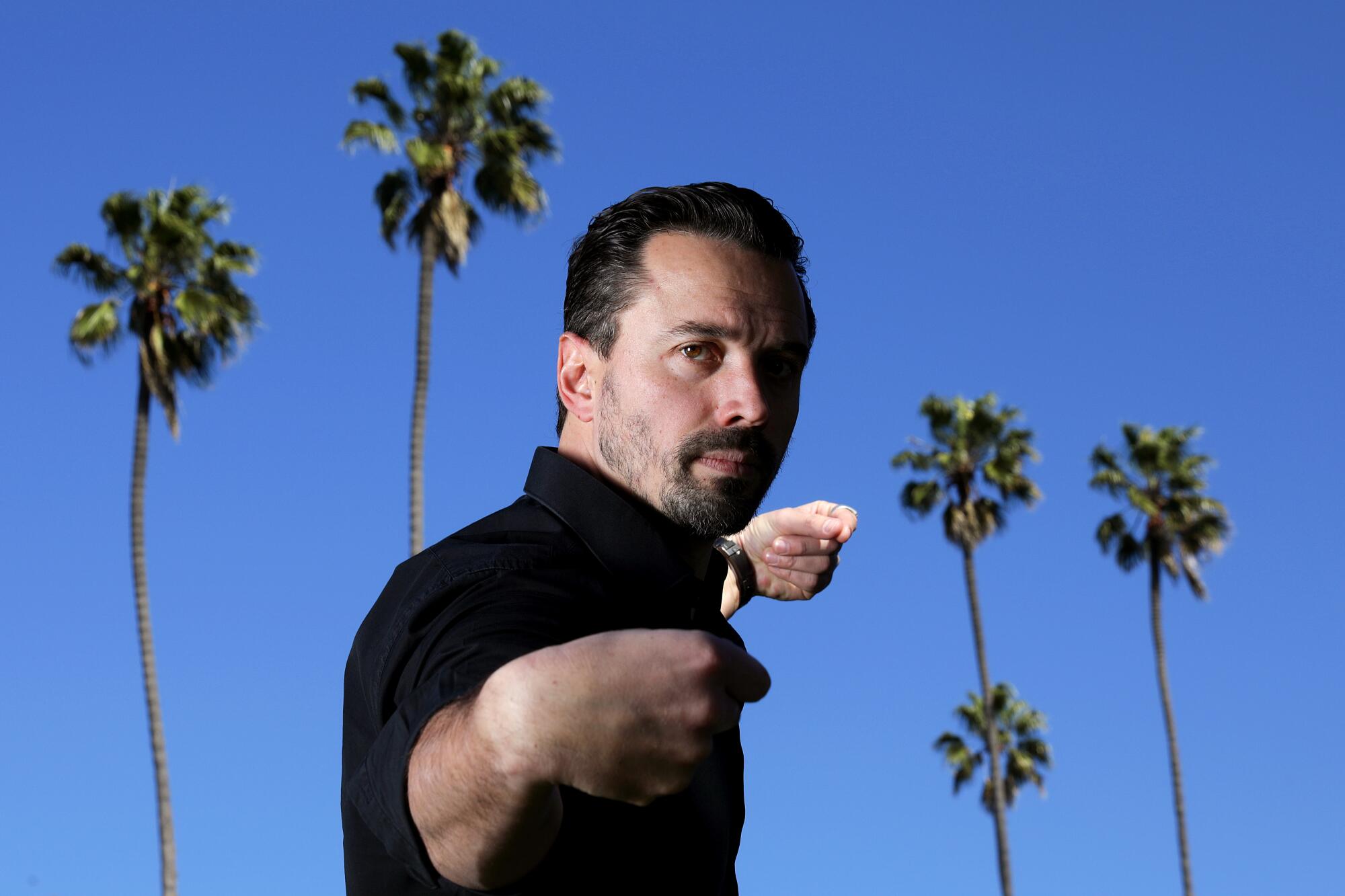
- Share via
“Sifu,” the revenge-focused kung fu action game with nearly 1 million copies sold since its Feb. 8 release, has become a breakout hit in 2022. What’s more, the game has earned praise for its fighting complexity as well as the respect it shows to a Chinese art.
But if the game is accurate in depicting the specific kung fu fighting style known as Pak Mei, that’s a debt owed to Benjamin Colussi. The Paris resident and kung fu master has seen too many films and games with an inaccurate approach to fighting. He didn’t want his name or the Pak Mei school he runs to have their brands sullied.
He was ready to be a pest.
“For me, it was important to not just sign a [licensing] contract and go back to my stuff and that’s all,” says Colussi, who was recently in Los Angeles to take meetings for other potential media products. “I really wanted to make a point. So before signing, I said, ‘I want to see the movement, and want the chance to say, “You can do better.”’ It was a struggle for the team. They thought I wanted to take up too much space. That was not my goal. My goal was to be sure that what they do reflects what we want.”
In a crowded gaming month with blockbuster releases such as “Elden Ring” and “Horizon Forbidden West,” “Sifu” has managed to make an impact. The game has also inspired cultural and mechanical debates, as it’s not only difficult — I’ve barely made a dent into it — but the independent studio that made it, Sloclap, is based in Paris rather than China. As the architect of the game’s fighting, and a lifelong student of Chinese culture, Colussi is especially sympathetic to the latter discussion.
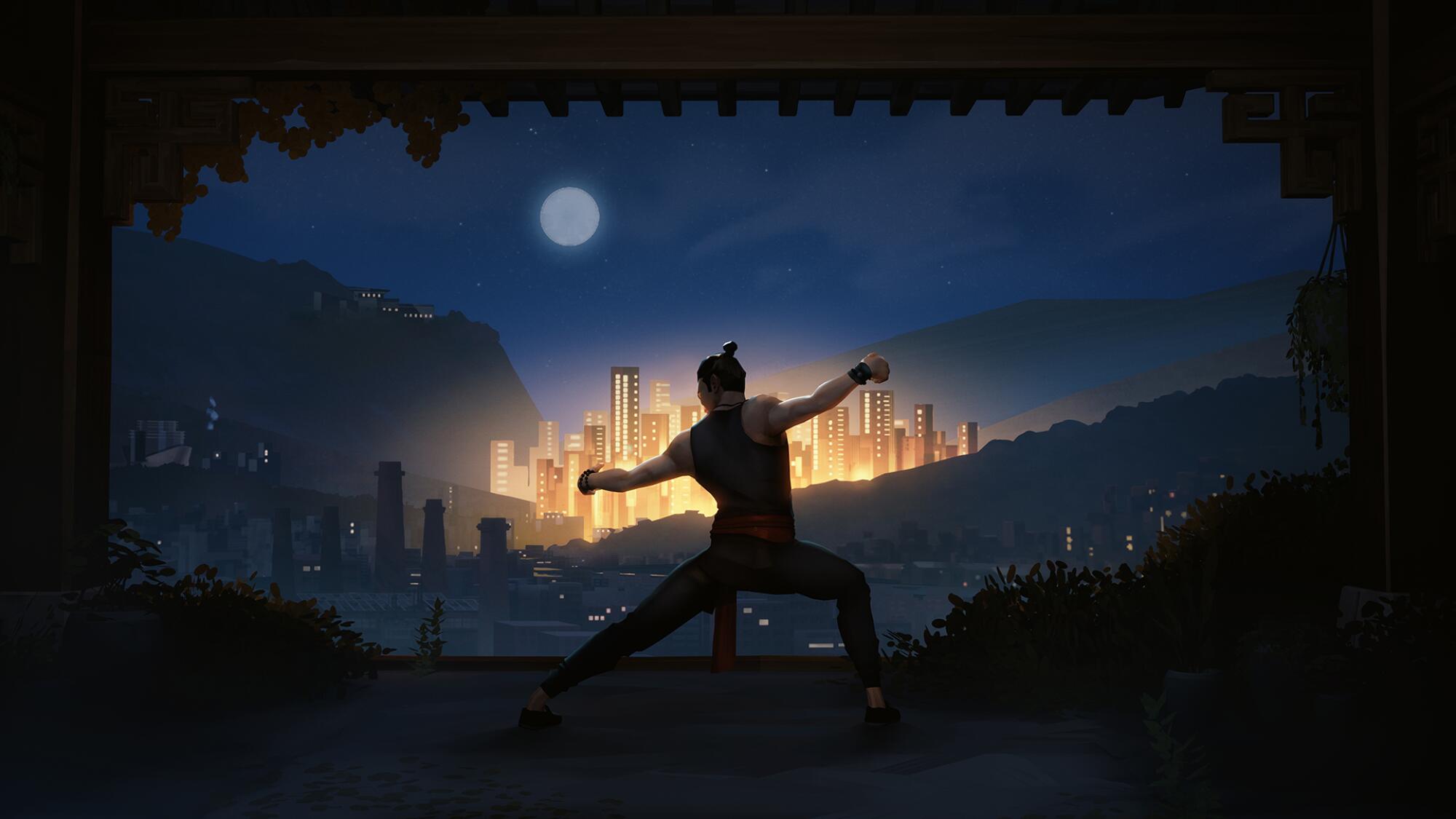
Since Colussi was 14, he’s made nearly yearly visits to China, having lived in the country for three years. “Foreigner” is how he has often been labeled, although Colussi notes that the phrase in China doesn’t carry with it the same stigma that it does in France.
“When I was a little kid I wanted to practice kung fu,” Colussi says. “I don’t have an explanation on that. I was searching for more, and a deep connection to the culture. What is kung fu? You have lots of styles. Some are acrobatic. Some are for fighting. Pak Mei is a bodyguard style of kung fu. Not every kung fu has the same purpose. In France, there was a lot of acrobatic stuff. Even though I loved this as a kid, this is not what I was searching for. So I started learning Chinese and my father flew me to China to show me what kung fu is. It put wood on the fire.”
Today, Colussi is considered an heir to the originators of the Pak Mei style, and in nonpandemic times he spends a number of weeks each year in China to continue to study from his masters. “My master saw the game,” Colussi says of his close relationship with Lao Wei San, who took on the French student as an apprentice before Colussi earned the Sifu or master title, and whose initials grace Colussi’s LWS Pak Mei School in Paris. “He didn’t play it. He does not care, but he loves the video and he loves every scene. He is very happy.”
Gaming execs, even ‘Avengers: Endgame’s’ Joe Russo, say games will define next-generation online worlds. But some warn the industry should fix its corporate culture first.
So is Colussi. The game fell into his lap in large part because some of the creative team has studied with Colussi. Early into production of the game, Sloclap asked for Colussi to host a workshop where he went over some kung fu basics. About a year after that, with the game still early in development, the studio reached back out to say that Colussi’s movement was inspiring the game, and could he work closely with the team? At that time, Colussi says, what would become “Sifu” wasn’t yet specializing in Pak Mei.
There would be many lessons, and talking to Colussi is akin to getting a free one. Ask about authenticity and Colussi launches into a history seminar, discussing differences between kung fu and wushu and how Chinese martial arts have changed over the decades, including how interpretations may differ from region to region within China. He may dip into some Chinese philosophy, and he is absolutely a student of pop culture, eager to discuss how film, television and games can get aspects of kung fu wrong.
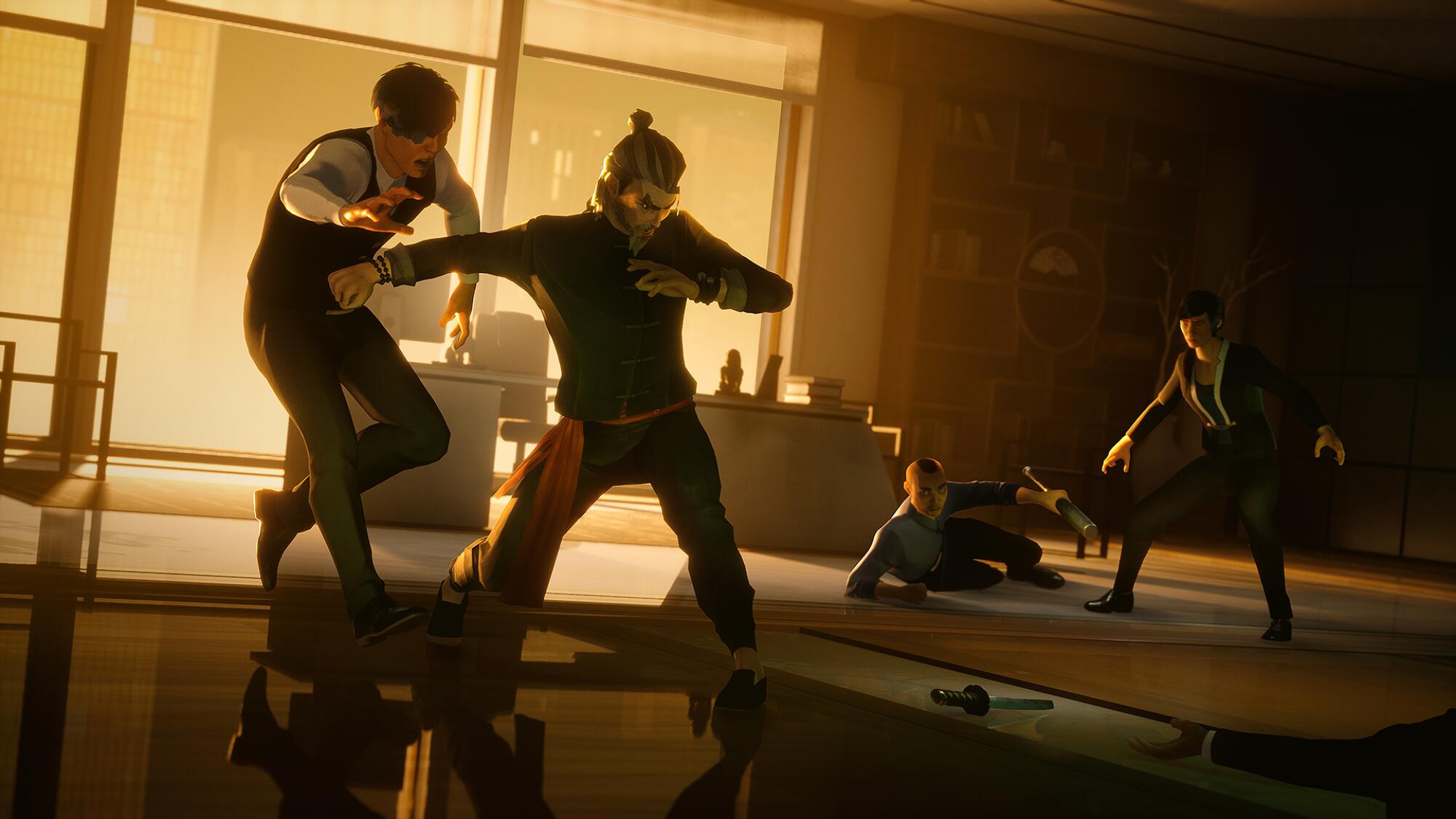
It’s easier, for instance, for Colussi to demonstrate a move rather than talk through it, but that’s not always feasible in a tight Santa Monica coffee shop courtyard. So I ask Colussi how to get kung fu right in a game, and he talks about past mistakes other fighting games have made.
“They asked me to do one punch to the head, one punch to the torso and one kick in the leg,” Colussi says. “I said, ‘Why don’t we complicate this?’ In ‘Street Fighter’ or ‘Street Fighter 2’ or this kind of game, you charge a punch. In real life, you don’t charge if you know how to punch. You don’t need to block your punch for two seconds and then release it. Why are we still doing that? We can stop doing that.”
Instead, “Sifu” is all about creating moments that will open up the characters and allow the player to make a pivotal move. To succeed, one must not only master the ability to dodge, but puzzle together which moves will work best in succession. “There is a movement in the game in which you strike with the back of your hand,” Colussi says. “When you do this, you move a little bit and try to create an opportunity. This is the kind of idea I put in the game to make the character more natural. It’s about searching for a way to get in.”
Most of Colussi’s moves for the game were filmed and motion captured in two days, each spanning more than 11 work hours. Gradually, says Colussi, the decision was made to focus solely on the Pak Mei style of kung fu. This was partly a concession to schedules but also to the realization that each style is its own language.
“It would have been great to have some other styles, but you need more time,” Colussi says. “If you put everything on the table, it’s just crumbs. If you want to make scones the French way, and you put sausage in it and sushi next to it, then it is not scones at the end. If you want a taste of something, it’s better to not mix. “
Of course, there are compromises made for the game. In “Sifu,” as has been the trend since the “Dark Souls” games have risen in popularity, a key strategy is to put a large emphasis on defense and parrying moves. I asked Colussi how this fit in with Pak Mei.
With ‘Uncharted’ and soon ‘The Last of Us’ for HBO, game studio Naughty Dog is ready for its Hollywood closeup. Gamer movie star Tom Holland sees the future.
“This is part of the mechanics,” he says, referencing the game. “This is not a concept of the strategy of fighting. But it is interesting because you need to read the situation. If you do not, you will get killed. But if you’ve read the situation, you have a better understanding of how to get through the situation. Defending and attacking are really important. In Europe, we always say ‘self-defense,’ but I think that’s just diplomatic words because when you fight there is always an attack to stop [the attack].”
Ultimately, Colussi wanted to slow the fighting down, to truly make it feel as if the player and the enemies are in a sort of rhythm rather than simply pummeling one another.
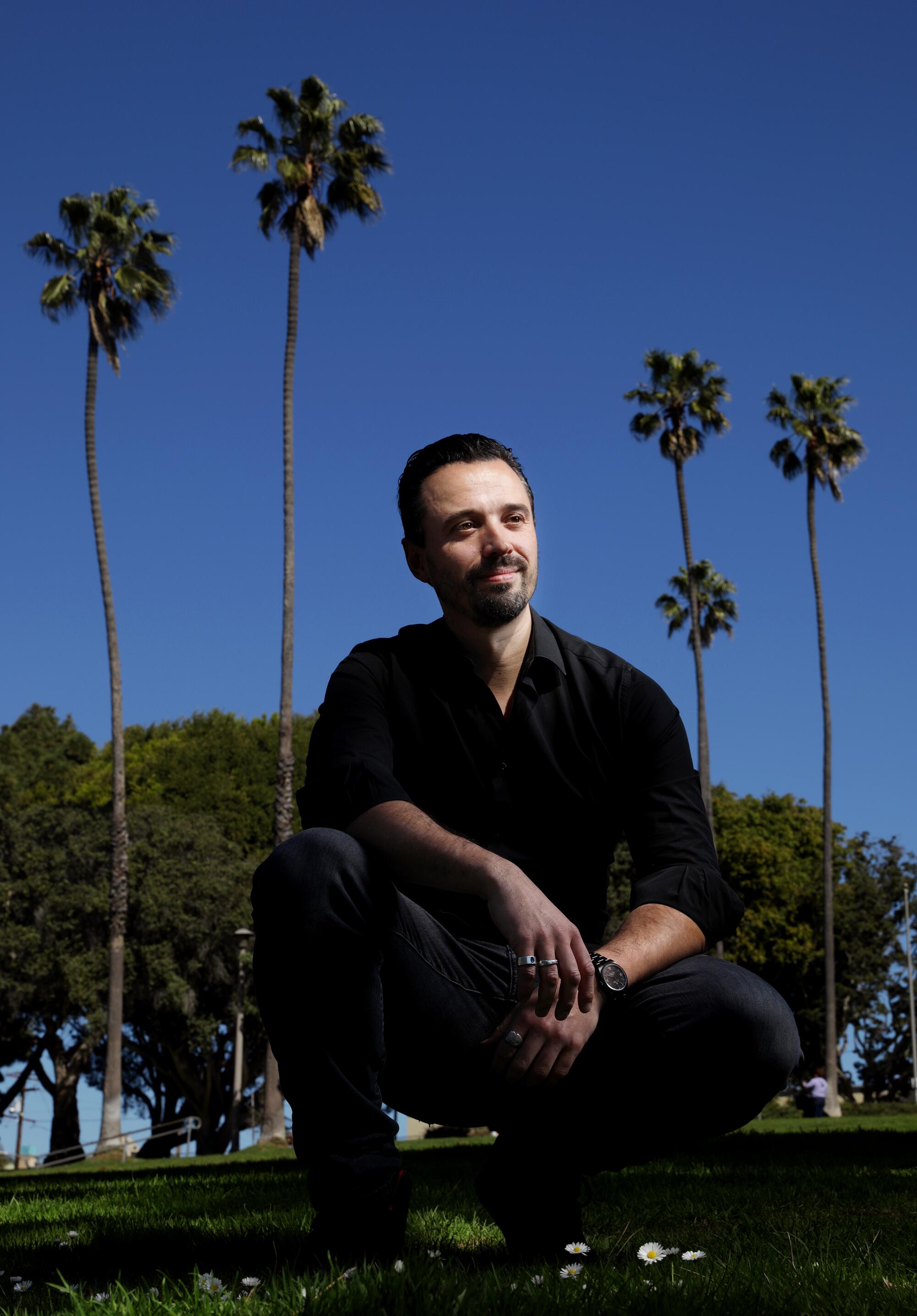
“Clarity of the movement” Colussi says. “Sometimes you feel the speed, but you don’t see what’s going on. If this is just speed when you strike, but you don’t have strength, you lose the meaning. It’s like speaking really fast. Nobody understands. If you speak quick, it’s like you don’t speak the language.”
Such is the problem with many a Hollywood film, Colussi says, noting that as much as he enjoys the “Kill Bill” movies today, initially the Quentin Tarantino films made him cringe. There’s plenty of fast movement, but it’s so fast the characters are moving without strength in their actions, he argues. Instead, I ask Colussi to tell me a modern film or two that gets kung fu right. He mentions a few films — including “Blade of Fury” and “The Prodigal Son” — but singles out 2013 film “The Grandmaster” from Wong Kar-wai.
“They want to show a poetic way of fighting, and while I don’t always understand this, you can feel how deep kung fu is in the characters,” Colussi says. “If you want to understand what kung fu is, you go watch this movie.”
Consider it some homework before playing “Sifu.”
The space opera fantasy returns in ‘Halo Infinite’ with Master Chief, a grappling hook, cheesy dialogue and a gorgeous vast world that’s pulpy and timeless.
More to Read
The biggest entertainment stories
Get our big stories about Hollywood, film, television, music, arts, culture and more right in your inbox as soon as they publish.
You may occasionally receive promotional content from the Los Angeles Times.
